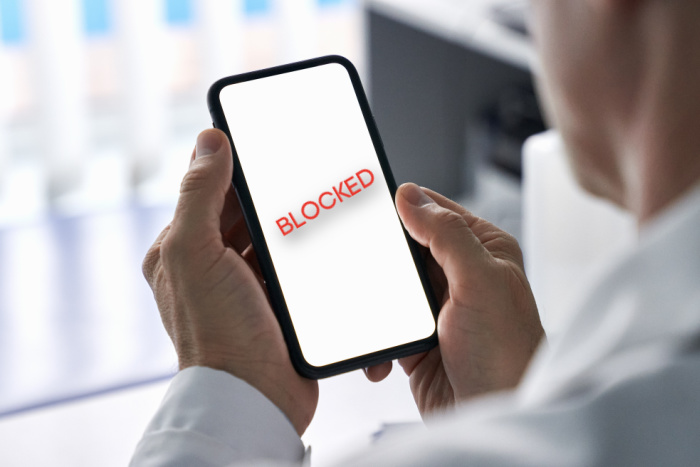Scammers Are Texting People Pretending To Be From Amazon. Here’s How to Stop Them.
Have you been getting those texts that are supposedly from Amazon, even though you KNOW you haven’t bought anything from them lately?

Yeah. It’s a scam. Do not reply to it!

It feels like no matter where we turn, there are scammers lurking in all the corners just waiting to pounce.
I even got one phone call claiming that the police were going to come arrest me if I didn’t “Pay My Fine.”

But, now I’m getting flooded with texts from “Amazon,” contacting me about my “order.”
According to NBC, these virtual phishing attempts have been on the rise since we were all trapped indoors because of COVID.

Typically, these phishing — attacks are aimed at tricking you into believing you are communicating with a legitimate representative of [Amazon]. If you’re not careful, you might over valuable personal information from your credit card information to login credentials for your online accounts, or click on malware-ridden links that infect your devices with viruses.
NBC

Virtual Scammers Will Convince You To Give Them All Your Valuable Information
Story Time: My parents got a text from “Amazon,” saying there was a problem with their account. My parents didn’t understand phishing, and they bought into the story.

They ended up texting the scammers back, calling a number they were texted, and finally giving the scammers virtual access to their computers.
Long story short — the scammers drained all of my parents’ accounts, corrupted their computers, and ALMOST got my dad to send them a $5000 gift card.

LUCKILY, I just happened to call them BEFORE any money changed hands. I alerted them to the fact they had been scammed.
We were able to get the police involved, but my parents’ prides, their accounts, and their computers were hurt in the most awful way.

How To Screen For Scams
Do NOT click any links that you are randomly sent via text or email.

Don’t share any personal information! Even if you think the scammers are legit, do not share any information with them.
The caveat: if you have actually called the customer care number listed on the company’s website, you can probably trust that you are really talking to Amazon.

That being said, NEVER give out passwords. A legitimate representative for the company will never ask for passwords.

According to the Federal Trade Commission, there are a few things that should IMMEDIATELY send up red flags.
- They will promise free prizes, gift cards or coupons
- They might offer you a low or no interest credit card
- They may promise to help you pay off your student loans

- Sometimes they say they’ve noticed some suspicious activity on your account
- They may claim there’s a problem with your payment information
- They often send you fake invoices and tell you to contact them if you didn’t authorize the purchase
- They might send you a fake package delivery notification

DO NOT buy into any of these scams. IMMEDIATELY delete the message, and don’t be tempted to open it.

The scam messages might ask you to give them personal information — how much money you make, how much you owe, your bank account, credit card, or Social Security number. They often say you’ve won a prize, and you have to provide this information to claim your gift.

Sometimes they will send you a link, and if you click on it you will be rerouted to a FAKE website set up by the scammers. The website may look completely legit — but it’s not.
NEVER click on a random link you’ve been texted or emailed.

Other messages may install harmful malware on your phone that steals your personal information without you realizing it.
Federal Trade Commission
If you really think it’s a legit message, go to the company website, get the customer service number, and call only THAT number. Ask them if they sent you a text or message regarding (whatever they messaged you about).

How To Report And Block Spammers
The easiest way to stop getting those suspicious messages is to BLOCK the phone numbers or email addresses that they are messaging you from.

It is also possible to manage your phone’s filters. You can weed out calls or texts from unknown numbers.
Now, don’t be surprised if you keep getting scam messages from other numbers or email addresses. Just because they are persistent doesn’t make them legitimate.

You should consider reporting the spam or phishing attempts to your wireless carrier or e-mail provider.
Also, if they are claiming to represent an actual company (like Amazon), you can report the suspicious activity directly to the company.

You can also fill out the FTC’s online fraud complaint form and contact the FBI’s Internet Crime Complaint Center.








